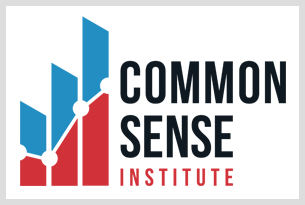Author: Chris Brown, Erik Gamm
The passage of Amendment B in 2020 repealed the formula that had governed Colorado’s property tax rates for decades. The measure triggered a frenzy of lawmaking activity that has still not settled. So far, efforts to ordain a permanent successor to the Gallagher Amendment have been frustrated by rapidly rising home values, skirmishes over TABOR, and political unpopularity. The result, despite multiple rounds of temporary rate reductions, has been extreme increases in many Coloradans’ home property tax bills over the last few years—increases larger than would have occurred under the Gallagher Amendment. Although a bill did pass during the 2024 session that permanently altered the property tax system, two ballot measures further altering property taxes likely await voters this November.
The data are finally in: The growth in taxable property values in 2023, has predictably led to a historic year for property tax revenue in 2024. The growth in residential property values, combined with limited rate reductions following the repeal of the Gallagher Amendment in 2020, underpinned the 2nd largest property tax revenue growth in the state’s history. The growth in residential property tax payments accounted for 17% of the average homeowner’s increase in expenses.[i]
Key Insights into 2024 Property Tax Revenue Growth
- Property tax revenue increased by $2.4 billion dollars in 2024. The annual increase of 19% was the largest since 1975. Since 2019, property tax revenue has increased by $5.4 billion (55%) and has more than doubled in the last nine years, growing over $8 billion, from $7.18 billion in 2015 to nearly $15.3 billion collected in 2024.
- After adjusting for inflation, property tax revenue per Coloradan increased by $304 from $2,262 to $2,566 in 2024. Over the past five years, inflation-adjusted revenue per Coloradan increased by $440. Therefore, 70% of the population- and inflation-adjusted property tax revenue increase since 2019 occurred in just the last year. The statewide increase in property tax revenue was four times higher than the average increase in population and inflation (19% vs 4.5%) and five times higher than the increase in the average weekly wage (19% vs 3.6%).
- There was a wide range of revenue growth across the state – 50 of Colorado’s 64 counties received net property tax revenue increases larger than population growth and inflation across all of their taxing authorities. Four counties experienced revenue growth below population and inflation growth and 10 counties saw nominal decreases in property tax revenue. Some of the largest adjusted increases were in mountain counties, while the decreases were mostly in rural counties in eastern and southern Colorado.
- Property tax revenue for Colorado school districts increased by $1.07 billion in 2024 (17%), outpacing inflation and enrollment growth of just 3%. Student enrollment declined in the FY24 school year by 5,243 students, as the per-pupil property tax revenue increased by $1,225, growing to $8,540. 141 of Colorado’s 179 school districts received property tax revenue growth that outpaced inflation and enrollment growth. 38 school districts experienced total property tax revenue growth lower than inflation and student growth.
- The growth in property tax revenue granted the legislature the ability to slow the growth in state education funding. The state share of school program funding grew by just $155 million between FY23 and FY25, while the local share grew by $1.1 billion. The strong growth in property tax revenue enabled the state to meet the constitutional requirement for education funding with a more limited increase in its budget commitment. As a result, a large beneficiary of the growth in property tax revenue is state spending areas outside of the public school system. The legislature’s decision to exempt school districts from SB-233’s taxpayer protections assures that the state share of school funding will continue to decrease. The state’s share of school program funding peaked in FY15 at 66.6% and will reach its lowest point in data back to 2001, 53%, in the FY25 school year.
- The data used to generate this report were provided directly to CSI by the Division of Property Taxation prior to the release of the 2023 Annual Report. In some cases, some totals varied slightly from the published annual report, but any changes were minimal.
Maps – Revenue Growth Across Counties and School Districts
Interactive maps can be viewed on Common Sense Institute website. https://commonsenseinstituteco.org/by-the-numbers-growth-in-property-tax-revenue
Figure 1
Figure 2
Figure 3
Figure 4
Figure 5
Figure 6
Figure 7
About Common Sense Institute
Common Sense Institute is a non-partisan research organization dedicated to the protection and promotion of Colorado’s economy. CSI is at the forefront of important discussions concerning the future of free enterprise and aims to have an impact on the issues that matter most to Coloradans. CSI’s mission is to examine the fiscal impacts of policies, initiatives, and proposed laws so that Coloradans are educated and informed on issues impacting their lives. CSI employs rigorous research techniques and dynamic modeling to evaluate the potential impact of these measures on the economy and individual opportunity.
Teams & Fellows Statement
CSI is committed to independent, in-depth research that examines the impacts of policies, initiatives, and proposed laws so that Coloradans are educated and informed on issues impacting their lives. CSI’s commitment to institutional independence is rooted in the individual independence of our researchers, economists, and fellows. At the core of CSI’s mission is a belief in the power of the free enterprise system. Our work explores ideas that protect and promote jobs and the economy, and the CSI team and fellows take part in this pursuit with academic freedom. Our team’s work is informed by data-driven research and evidence. The views and opinions of fellows do not reflect the institutional views of CSI. CSI operates independently of any political party and does not take positions.
[i] https://commonsenseinstituteco.org/colorado-property-tax-primer/

